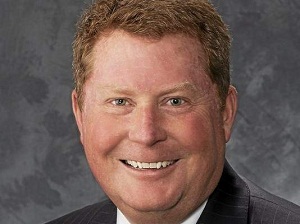Obama Appointed Federal Judge Rules Americans Have No First Amendment Right to Film PoliceCarlos MillerPINAC Feb. 23, 2016 |
Popular 
Report: Hamas Says Witkoff Promised to Lift Gaza Blockade in Exchange for Edan Alexander

Eloy Adrian Camarillo, 17, Arrested in Shooting Death of Infowars Reporter Jamie White

Ben Shapiro, Mark Levin and Laura Loomer Warn of Foreign Influence... From Qatar

U.S. Official Denies Report Trump Team Told Israel 'We Will Abandon You' If You Don't End Gaza War

NYT: Trump Ended War With Houthis After They Shot Down U.S. Drones, Nearly Hit Fighter Jets
  In an embarrassing Constitutional setback for the American judicial system, a federal judge in Pennsylvania ruled on Friday that citizens do not have the First Amendment right to record police in public. In an embarrassing Constitutional setback for the American judicial system, a federal judge in Pennsylvania ruled on Friday that citizens do not have the First Amendment right to record police in public.That is, unless those citizens are telling the cops to go fuck themselves. Then it's protected speech. That's the twisted logic coming from Judge Mark A. Kearney, a federal judge for the United States District Court for the Eastern District of Pennsylvania, who's been on the bench a little more than a year. Prior to that, he was a shareholder in a high-profile law firm in Philadelphia specializing in commercial litigation, so perhaps he is not fully versed in First Amendment law, which is why he dismissed a First Amendment retaliation claim from two citizens who were arrested by Philadelphia police on two separate occasions for recording officers in public. The two cases were consolidated to determine "whether photographing or filming police on our portable devices without challenging police is expressive conduct protected by the First Amendment." In other words, had either of these citizens told the cops to go fuck themselves as they recorded or took photos, then their actions would have been protected under the First Amendment in Kearney's view. Of course, knowing Philadelphia police, that would probably have earned them a beating in addition to the usual First Amendment abuses practiced by the department. In fact, the two suits were part of five similar suits filed by the ACLU of Pennsylvania against the Philadelphia Police Department in September 2014, two months after Kearney had been nominated to the federal bench by the president. Thanks, Obama. In the first case, a woman named Amanda Geraci tried to record Philadelphia police arresting a citizen during an anti-fracking protest on September 12, 2012 when an officer charged at her her in a full run, thrusting her forearm against Geraci's neck while shoving her against a glass as other cops surrounded them to prevent anybody else from recording. In the second case, a Northwestern University student named Richard Fields was strolling down the street on September 13, 2013 when he came across a group of Philadelphia police officers standing outside a home hosting a party and figured it would make an interesting photo, but ended up handcuffed, detained and arrested by a cop named Sisca, who asked, "do you like taking pictures of grown men?" Sisca, who first name is probably Joseph, ordered him to leave, but Fields asserted his First Amendment right and was charged with obstructing the highway, even though he was on the sidewalk the entire time. In making his decision, Kearney viewed the First Amendment through the most narrowest of lenses, focusing on the freedom of speech portion while completely ignoring the freedom of the press portion. Here are excerpts from his 21-page decision, which can be read in its entirety here: We find there is no First Amendment right under our governing law to observe and record police officers absent some other expressive conductThe way he words it, the only way the recording of police in public can be protected is if the person holding the camera partakes in "expressive conduct." That could perhaps be dancing as Philly Law Blog writes: Apparently if you want to film the police, you have to yell at them, criticize their conduct, or perhaps even do a little jig. The court held that there is no First Amendment right to merely recording, because that's observation and not "speech.Read More |



